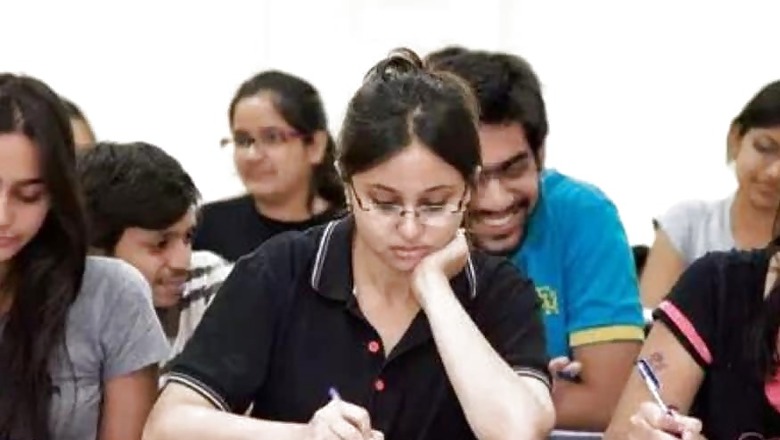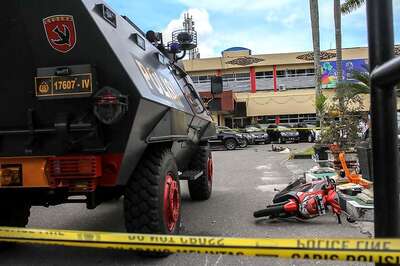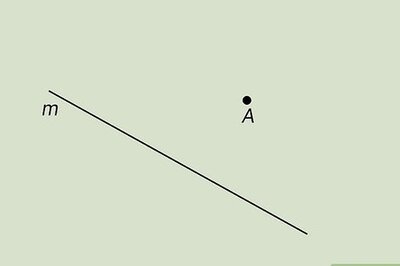
views
New Delhi: The Human Resource Development Ministry tweaked the final draft of the New Education Policy to dilute the provision on extending the Right to Education Act (RTE) up to Class 12.
The final NEP states that the “….RTE Act will be considered for extension downwards to include up to three years of early childhood education prior to Grade 1, and upwards to include Grades 11 and 12.”
This is a marked difference from the draft which had assured the extension following a committee recommendation.
“To ensure that all students, particularly students from under-privileged and disadvantaged sections, have a guaranteed opportunity to participate in high-quality schooling from early childhood education (age 3 onwards) through higher secondary education (i.e., until Grade 12) – both today considered essential for a young person’s educational development and attainment – the right to free and compulsory education as guaranteed by the RTE Act will be extended downwards to include up to three years of early childhood education prior to Grade 1, and upwards to include Grades 11 and 12,” the draft had stated.
In other words, the draft assured free and compulsory education for all children and adolescents between the ages of 3 and 18 i.e. from the full foundational stage till the secondary stage.
A Central Regulator
The final version of the New Education Policy 2019 roots for the creation of the State School Regulatory Authority (SSRA) by each state as the first draft had proposed in May.
The primary role of the body would be to regulate on the basis of a few parameters, namely, safety, security, basic infrastructure, the number of teachers across subjects and grades, probity, and sound processes of governance.
The draft had stated that the framework for these parameters will be created by the SCERT for each state in consultation with various stakeholders, especially teachers and schools. “Accreditation and audit will be used to implement these frameworks. Transparent public disclosure of all regulatory information, by the regulatory bodies and by the schools, will be used extensively for public oversight and accountability.”
The recommendation intends to significantly bring down the heavy load of regulatory mandates currently borne by schools. The three distinct roles of governance and regulation, namely, the provision/operation of education, the regulation of the education system, and policy making, will be conducted by separate independent bodies, in order to “avoid conflicts of interest and concentrations of power, and to ensure due and quality focus on each role.”
The committee had found the current regulatory regime as being insufficient in curbing the rampant commercialization and exploitation of parents by many private schools. And yet it has inadvertently discouraged public-spirited private/philanthropic schools. "There has been far too much asymmetry between the regulatory approaches to public and private schools, even though the goals of both types of schools should be the same: to provide a quality education," the final draft said.
School Regulation
Emphasising on the school education regulation, the draft NEP 2019 had stated, “The educational operations and service provision for the public schooling system of the whole state will be handled by the Directorate of School Education (DSE); it will work to implement policies regarding educational operations and provision, but otherwise will be separated from and work independently of the apex body above.”
The frameworks will be implemented through a process of accreditation and audit. Transparent public disclosure of all regulatory information, by the regulatory bodies and by the schools, will be used extensively for public oversight and accountability.
“The Department of School Education currently acts as the apex state level body in school education and will be the primary institution for overall monitoring and policymaking for continual improvement of the system; however, it will not be involved with the provision and operation of schools or with regulation of the system, in order to eliminate conflicts of interest.”
It further stated that certification of competencies of students at the school-leaving stage will be handled by the Boards of Certification/Examination in each State.
The draft calls for the public and private schools regulation to implement regulation on the basis of the same criteria and benchmarks, emphasizing online and offline public disclosure and transparency, “so as to ensure that public-spirited private schools are encouraged and not stifled in any way.
Private philanthropic efforts for quality education will be encouraged - thereby affirming the public-good nature of education - while protecting parents and communities from usurious commercial practices, including arbitrary increases in tuition fees.



















Comments
0 comment